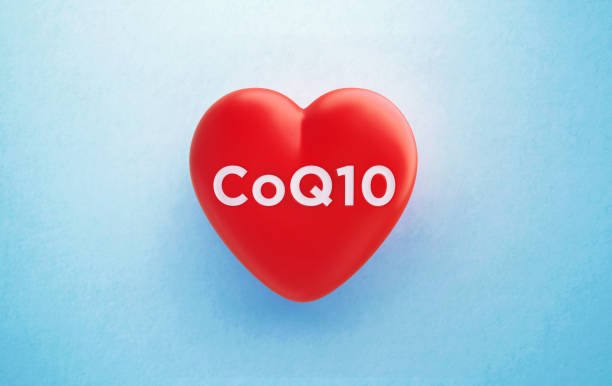
The 4 Major Effects of Coenzyme Q10 are Exposed! But These Three Types of People Cannot Eat It.
A healthy diet is one of the keys to preventing cardiovascular disease, but if you want to work harder on cardiovascular health or make up for your daily diet deficiencies, you may choose nutritional supplements. This article introduces Coenzyme Q10, a popular nutritional supplement in recent years. Let’s learn about its functions and benefits!
What is Coenzyme Q10?
Coenzyme Q10 (Coenzyme Q10) is an antioxidant that the human body can produce by itself. Many people also call it Q10 for short. It mainly consists of two types: L-Tyrosine and L-Methionine. Amino acid synthesis. Traces of Coenzyme Q10 can be found almost everywhere in the human body, with the highest concentration of Coenzyme Q10 in the heart.
In addition, because cells rely on the mitochondrial electron transport chain to generate energy to maintain their functions, the transfer of electrons is necessary. In addition to playing the role of an antioxidant, Coenzyme Q10 is also a mobile electron carrier, by participating in electron transfer The redox reaction of the chain promotes the production of Adenosine Triphosphate (hereinafter referred to as ATP).
Simply put, ATP is like gasoline for a vehicle, and Coenzyme Q10 is like a fuel supply device such as a gasoline pump, helping the vehicle obtain gasoline supply more quickly and smoothly.
Coenzyme Q10 efficacy and role
Generally speaking, the greater the need for energy supply in an organ or tissue, the greater the demand for Coenzyme Q10. Therefore, a heart that beats 24 hours a day has an obvious demand for Coenzyme Q10. However, it has been clinically found that the amount of Coenzyme Q10 in patients with heart failure is significantly reduced. The human body may affect the concentration of Coenzyme Q10 due to stress or illness. If the concentration of Coenzyme Q10 decreases by more than 75%, it may even cause death.
Effect 1. Protect cells and avoid free radical damage
According to a comprehensive study in Current Cardiology Reviews, coenzyme Q10, as an antioxidant, can also protect cell membranes from free radicals produced by lipid peroxidation.
Effect 2. Protect cardiovascular system
Research published in the “Journals of the American Heart Association” (AHA journals) shows that patients with heart failure can reduce the incidence of adverse cardiovascular problems by consuming coenzyme Q10. The study also mentioned that heart failure is related to low myocardial ATP production, mitochondrial dysfunction, increased reactive oxygen species, and endothelial dysfunction; among them, the peroxide mentioned earlier is included in the reactive oxygen species. Q10 not only promotes ATP production, but also inhibits the oxidation of low-density lipoprotein (LDL), a key substance that causes atherosclerosis.
Effect 3. Delay aging
It is worth mentioning that Coenzyme Q10 can also be used as a beauty and health care product; the antioxidant capacity of Coenzyme Q10 can delay cell aging and protect collagen. Some studies have found that Coenzyme Q10 helps prevent wrinkles.
Effect 4. Improve headaches
When mitochondria malfunction, it causes low energy in brain cells and can lead to migraines. Since Q10 is mainly found in the mitochondria of cells, it may be beneficial in treating migraines. A 2017 study found that CoQ10 may help reduce the frequency of headaches and make them shorter and less severe.

Coenzyme Q10 intake pipeline
In fact, the sources of Coenzyme Q10 are quite wide. Not only can the human body produce it by itself, but Coenzyme Q10 is also found in fish, meat and whole grain foods. Unfortunately, the human body’s production of Coenzyme Q10 will gradually decline after the age of 20, but the human body’s demand for it does not decrease, so it needs to be supplemented through diet or nutritional supplements. Although Coenzyme Q10 can be taken from natural foods, It only accounts for about 1/3 of the recommended daily intake of 30 mg. Therefore, through the intake of nutritional supplements, it is more effective to increase the level of Coenzyme Q10 in the body.
Who cannot take Coenzyme Q10?
According to the use restrictions and labeling regulations of the food raw material coenzyme Q10 by the Food and Drug Administration of the Ministry of Health and Welfare, the following groups are not suitable for use of coenzyme Q10:
- Children under 15 years old
- Women who are pregnant or breastfeeding
- Patients taking anticoagulants (e.g. Warfarin)
Coenzyme Q10 Side Effects
Many research results indicate that supplementing coenzyme Q10 will not cause obvious or serious side effects on the human body. In a study of heart failure patients, the most common side effect was nausea, followed by skin rash. Listed below are other possible side effects of taking CoQ10:
- Dizziness
- fatigue
- Insomnia
- diarrhea
- Loss of appetite
- Abdominal pain
- Headache
- photophobia
How to choose Coenzyme Q10?
There are a dazzling array of Coenzyme Q10 nutritional supplements currently on the market. The main production methods are natural fermentation extraction and tobacco leaf chemical synthesis. We often say “natural is better”, and the same is true for selecting Coenzyme Q10; made from natural fermentation extraction. The price of coenzyme Q10 is higher, but its safety and human compatibility are better than those of chemical synthesis. It is recommended that consumers pay attention to the ingredient labels when purchasing, and mainly use internationally renowned brands. People with heart disease should also discuss this with their physician before considering taking CoQ10 supplements.












